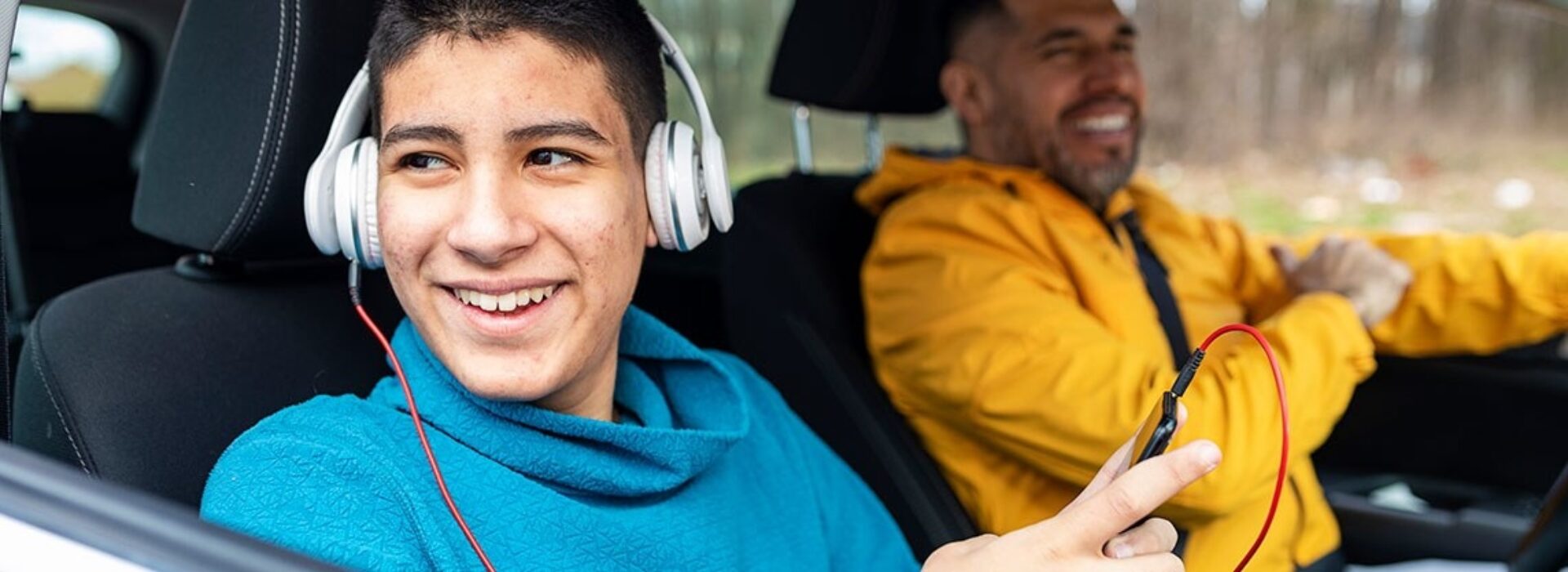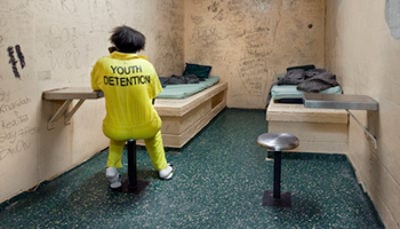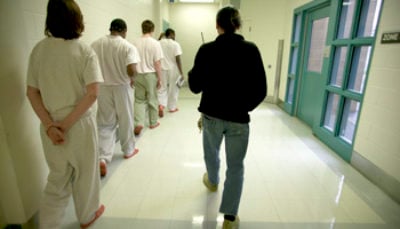Begun as a pilot project in five jurisdictions in the 1990s, the Foundation's Juvenile Detention Alternatives Initiative (JDAI) reform model is now being implemented in more than 250 U.S. counties.

Ensuring that young people exposed to the legal system can realize their potential, even when they make mistakes and violate the law in serious ways.
Spearheading a national movement to reform detention — a crucial early phase of the juvenile court process — by reducing overreliance on temporary confinement for youth awaiting their court dates.
Begun as a pilot project in five jurisdictions in the 1990s, the Foundation's Juvenile Detention Alternatives Initiative (JDAI) reform model is now being implemented in more than 250 U.S. counties.
Participating JDAI sites have reduced their daily detention populations by 43% since joining the initiative while maintaining or improving public safety.
In 2009, the New York Times published an editorial lauding JDAI’s “astonishing” results and recommending that the model “deserve[s] to be replicated nationwide.”
Promoting reforms to reduce incarceration and other out-of-home placements for delinquent youth.
A ground-breaking study, No Place for Kids: The Case for Reducing Reliance on Juvenile Incarceration, shows that America’s overreliance on youth incarceration is dangerous, ineffective, obsolete, wasteful and unnecessary, while providing no net benefit to public safety. The Foundation updated those findings four years later in Maltreatment of Youth in U.S. Juvenile Corrections Facilities.
We have expanded JDAI to focus on the “deep end” of the juvenile justice system — reducing long-term placements into correctional institutions and other facilities. Casey’s Juvenile Justice Strategies Group is piloting efforts in six local JDAI sites, as well as Georgia, to devise and implement reforms aimed at reducing the number of children removed from home in the delinquency court process.
Over the past decade, the Foundation has undertaken several intensive projects to help states and localities analyze and reorient their juvenile justice policies, leading to significant shifts away from juvenile incarceration in Alabama, New York City, Washington, D.C., and other jurisdictions.
Probation is court-ordered supervision of youth in the community that can last from months to years. It is the most common experience young people have within juvenile justice systems and places restrictions on what young people can do, who they can see and where they can go. Probation imposes rules — including curfew, school attendance and drug-testing mandates — on youth. Breaking these rules can result in further restrictions, return to court and even incarceration.
Diversion, like community- and school-centered prevention strategies, hold youth accountable for their behavior without resorting to legal sanctions. All young people need guidance, access to opportunities and a support network of positive adults and peers to help them mature into productive adults. Diversion and prevention allow youth with risk of legal system involvement to avoid lasting consequences and stigma that can disrupt their futures.
Advancing a key set of principles related to juvenile justice reforms.
Believe in a future where all young people — no matter their race, ethnicity, gender or neighborhood — can realize their potential, even when they make mistakes and violate the law in serious and violent ways.
Expand the Use of Diversion and Prevention: Keep most youth out of the juvenile justice system through community-led diversion, restorative justice and other strategies aimed at preventing system involvement for youth who get in trouble at school or in their communities.
Transform Probation: As the disposition most often imposed on young people who enter our nation’s juvenile justice systems, taking action to get probation right presents an enormous opportunity for improving the entire youth justice system.
Promote Community-based Support, Connections and Opportunities: Support efforts aimed at reducing the reach of the formal system and shifting funds toward community organizations that support young people.
Stand for the well-being of youth involved with the legal system. Young people are most likely to thrive at home or in settings in their own communities with stable connections to positive adults and opportunities.
Encourage authentic partnership with affected young people and their families and communities so the future of youth justice is shaped by those with real-life legal system experience.
Fund trailblazing efforts that invest in the wisdom, power and creativity of young people, families and communities to work toward a new, community-defined vision of youth justice, such as community-driven efforts in Albuquerque and Houston.
Safely and significantly reduce all forms of out-of-home placement in the justice system, especially for youth of color.
Heed decades of evidence that the use of detention centers, youth prisons and other residential settings to respond to delinquency undermine the life trajectories of young people, makes communities less safe, wastes scarce public resources and separates young people from what they need to grow into responsible adults.
Use strategies that are explicit about race to counterbalance generations of structural racism and overrepresentation of Black, Latino and Indigenous youth in our legal system.
Stay humble. Never think the work is done or that we have it all figured out. Our assumptions and plans may change as we partner with youth, families and others who bring different skills, networks and approaches to juvenile justice.
Use data to closely examine how decisions are made throughout the system to improve the trajectory for all young people, especially the most overrepresented populations and those facing the steepest systemic barriers to a positive adulthood.
Elevate the standard of care for young people experiencing youth corrections today, including helping young people heal when they have been exposed to traumatizing violence.

Diversion helps at-risk youth avoid legal harm and stigma by using community-based strategies that promote accountability without court sanctions.

JDAI helps build a more equitable youth justice system by promoting alternatives to detention, which research shows lead to better outcomes for youth.

Surveillance-based probation doesn’t support rehab. Transforming it means using targeted help to build growth and success for high-risk youth. Learn more.

Jurisdictions can use strategies to safely reduce youth incarceration — especially for kids of color — as they work to end the youth prison model.
The youth justice system can improve its handling of youth gun possession cases. Get practice recommendations.
A webinar explores how to leverage Medicaid to support young people with justice system involvement. Register today.
This brief shares guidance for counties on adopting evidence-based youth probation practices and strategies. Learn more.
We hope you'll find value in this report. We’d love to get a little information from you, which we'll use to notify you about relevant new resources.